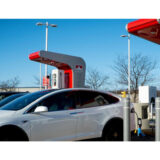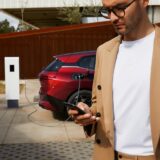
Toyota targets to reduce electric vehicle battery cost by 50%
Efforts to drive rapid electrification require significant improvements in battery development. Leading Japanese automaker Toyota Motor Corporation is targeting a 50% reduction in battery costs per electrified vehicle by 2030, says Masahiko Maeda, chief technology officer. Maeda provided the update during a presentation on Toyota’s Battery Development and Supply on September 7, 2021.
Much of Toyota’s efforts on the path towards carbon neutrality have focused on the dissemination of hybrid electric vehicles (HEV). However, the Japanese automaker is expanding its options for achieving carbon neutrality, including the advancement of battery electric vehicle (BEV) and plugin hybrid electric vehicle (PHEV) technology. Toyota’s electrified vehicle sales volume forecast for 2030 is 8 million units, including 2 million units BEVs and fuel cell electric vehicles (FCEV).
The 50% cost reduction ambition will be manifest through absolute reductions in battery cost and improvements in power efficiency. Toyota is pursuing greater than 30% reduction in the cost of a single battery through the development of low-cost materials — cobalt free, nickel free and new electrode materials; advancement in battery manufacturing processes and battery material processes; a new integrated structure of battery cells and packs to match the vehicle; and the evolution of the battery control model to allow fuller use of battery capacity.
A 30% improvement in vehicle power efficiency will enable a 30% reduction in battery capacity, says Maeda. Toyota intends to achieve this through the reduction of vehicle driving resistance; further expansion of energy regeneration; optimal thermal management of the entire vehicle and components; and the optimal efficiency design and control of the entire powertrain system.
In his presentation, Maeda indicated that future BEVs will utilize technology cultivated through years of HEV development to improve long service life. The automaker is aiming for world-class endurance with the new Toyota bZ4X model, due to launch by mid-2022, with a durability performance target of 90% battery capacity maintenance rate after 10 years.
.jpg)











